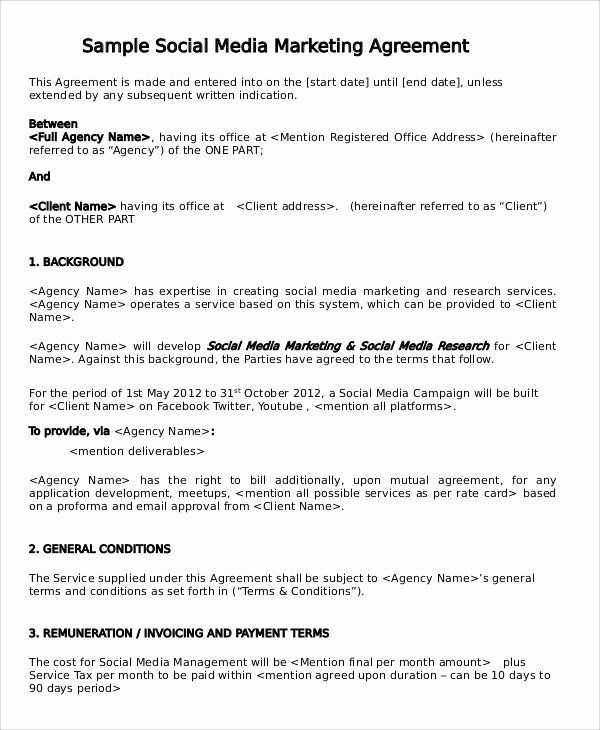
In the world of marketing, agreements are essential to ensure that both parties involved understand their roles, responsibilities, and expectations. A marketing agreement is a document that outlines the terms and conditions of a marketing partnership between two parties. This agreement can cover various aspects such as payment terms, deliverables, timelines, and confidentiality agreements.
In this comprehensive guide, we will explore everything you need to know about marketing agreements, including why they are important, how to create one, and tips for successful implementation.
What is a Marketing Agreement?
A marketing agreement is a formal document that outlines the terms and conditions of a marketing partnership between a company and another party, such as a marketing agency, influencer, or affiliate. This agreement typically includes details such as the scope of work, payment terms, deliverables, timelines, and any other specific requirements or expectations.
Creating a marketing agreement is crucial to ensure that both parties are on the same page and have a clear understanding of what is expected from each other. By outlining all the details in writing, the risk of misunderstandings or disputes down the line is significantly reduced.
Why Marketing Agreements are Important
Marketing agreements are important for several reasons. Firstly, they provide clarity and transparency between the parties involved. By clearly outlining the terms and conditions of the partnership, both parties can avoid misunderstandings and ensure that everyone is on the same page.
Secondly, marketing agreements help protect the interests of both parties. By clearly defining the scope of work, deliverables, and payment terms, the agreement serves as a legal document that can be referred to in case of any disputes or disagreements.
How to Create a Marketing Agreement
Creating a marketing agreement may seem like a daunting task, but it doesn’t have to be complicated. Here are some steps to help you create a comprehensive and effective marketing agreement:
1. Identify the parties involved: Start by clearly identifying the parties involved in the agreement, including their names, addresses, and contact information.
2. Define the scope of work: Outline the specific services or deliverables that will be provided as part of the marketing partnership.
3. Specify payment terms: Clearly define the payment terms, including the amount, frequency, and method of payment.
4. Include timelines: Include specific timelines for the delivery of services or completion of tasks.
5. Address confidentiality: If necessary, include a confidentiality clause to protect sensitive information.
6. Review and finalize: Once the agreement is drafted, review it carefully to ensure that all details are accurate and complete. Make any necessary revisions before finalizing the agreement.
Examples of Marketing Agreements
To give you a better understanding of what a marketing agreement looks like, here are some examples of common clauses that are typically included in such agreements:
- Scope of work: This section outlines the specific services or tasks that will be provided as part of the marketing partnership.
- Payment terms: This section specifies the amount, frequency, and method of payment for the services provided.
- Confidentiality agreement: This clause protects sensitive information shared during the partnership.
- Termination clause: This clause outlines the conditions under which either party can terminate the agreement.
- Indemnification clause: This clause specifies the responsibilities of each party in case of any legal claims or disputes.
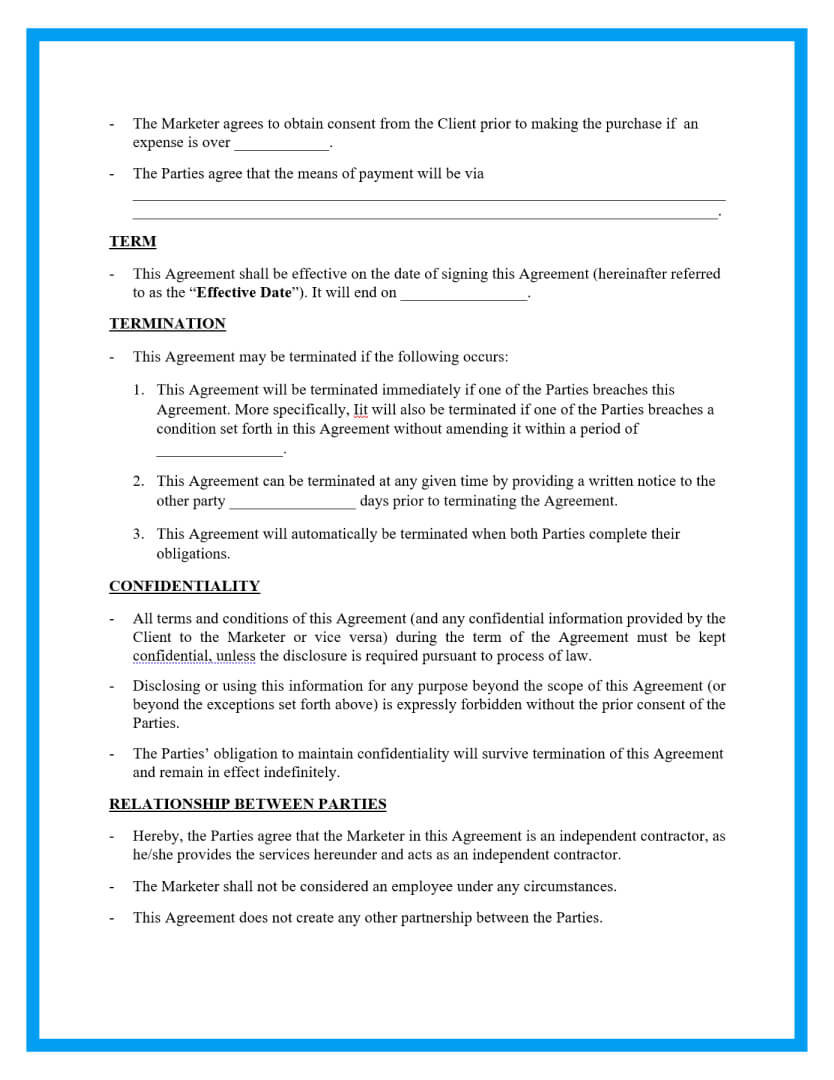
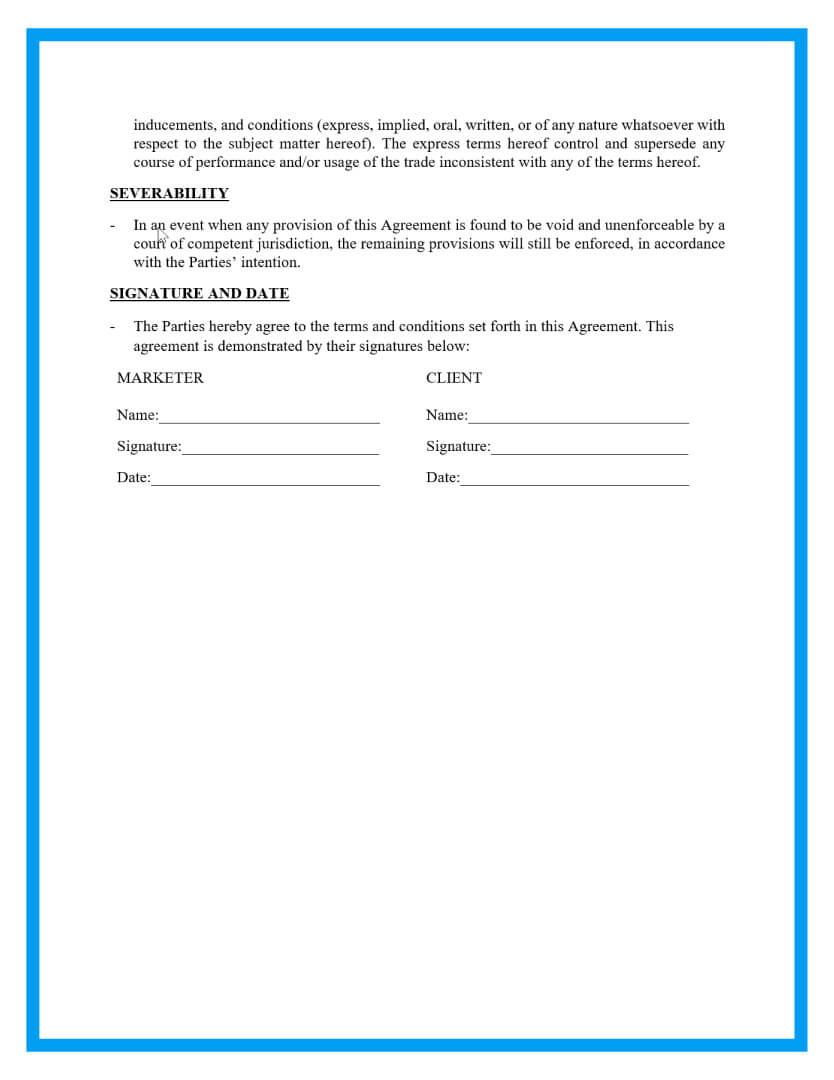
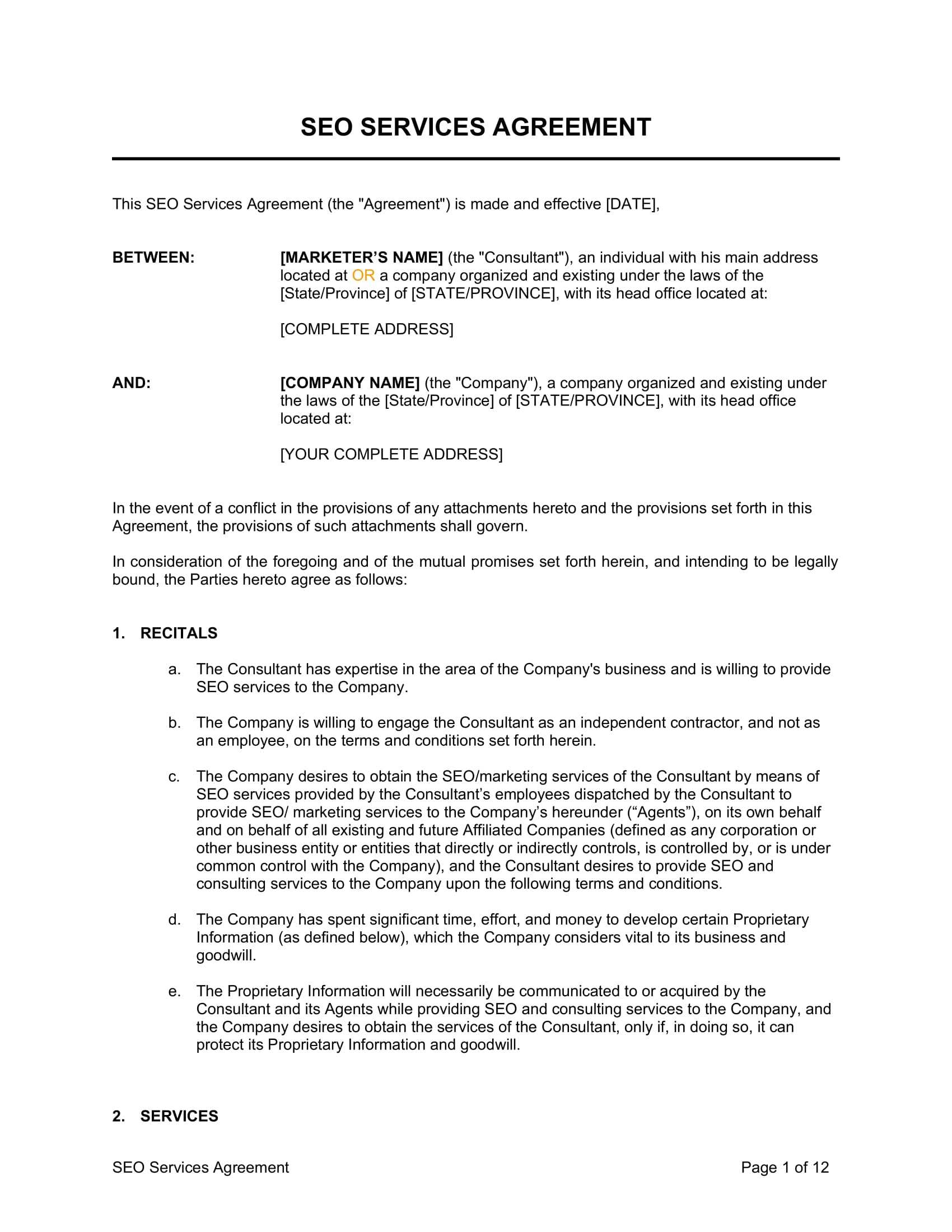
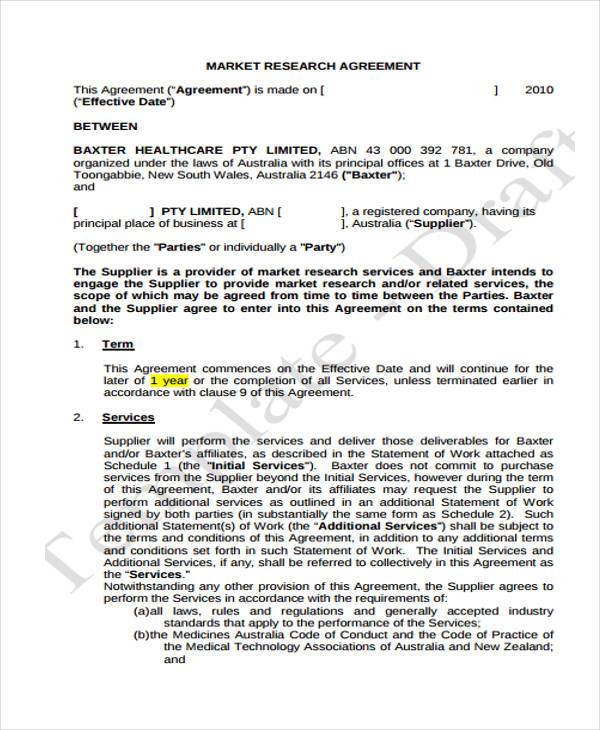
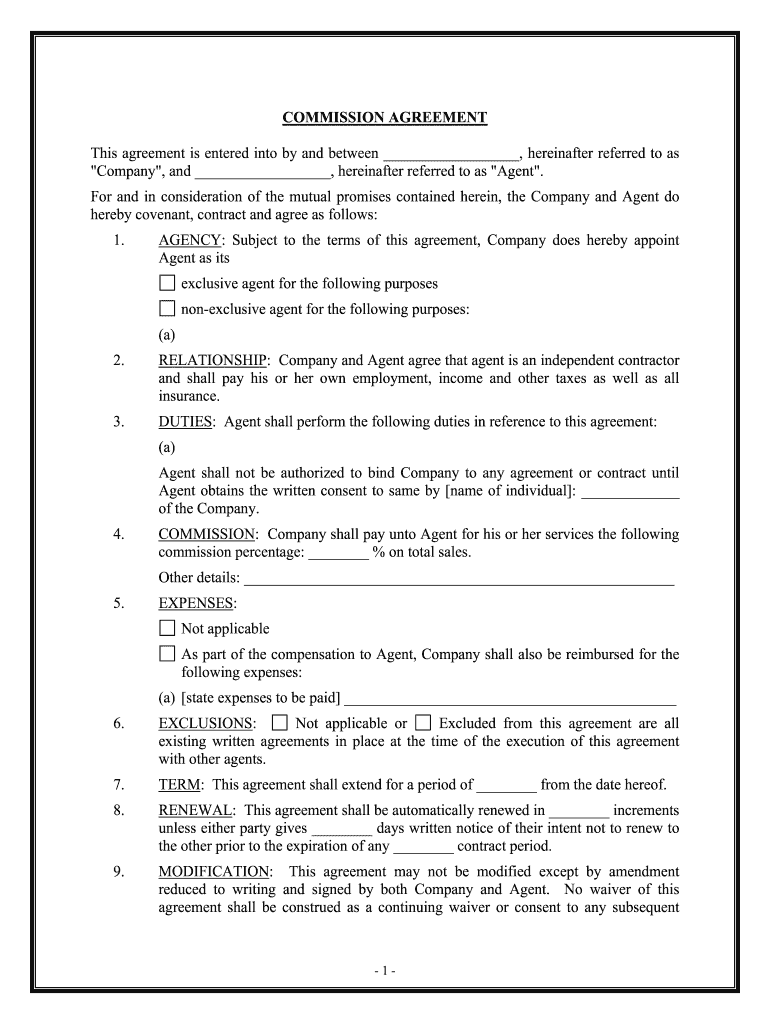
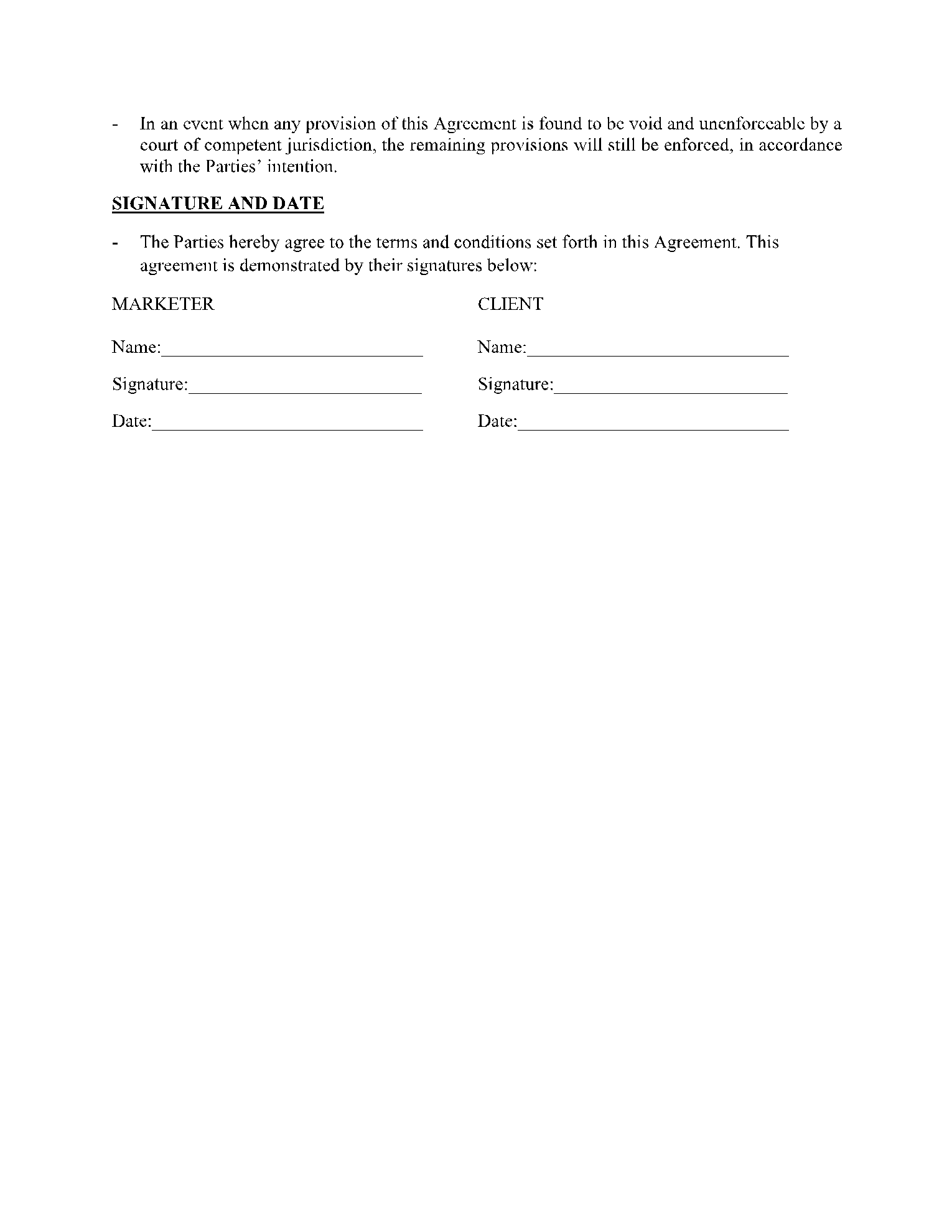
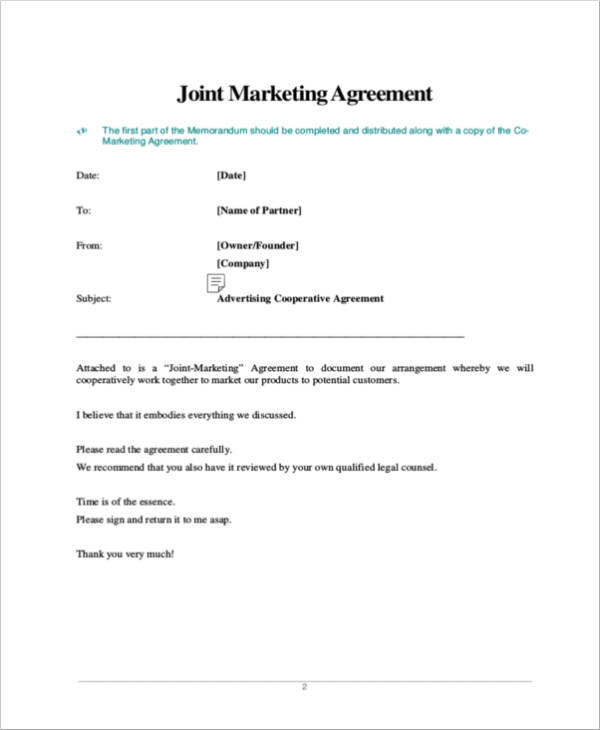
Tips for Successful Marketing Agreements
Creating a successful marketing agreement requires careful planning and attention to detail. Here are some tips to help you create an effective agreement that sets the foundation for a successful partnership:
1. Clearly define the scope of work: Be specific about the services or deliverables that will be provided as part of the partnership.
2. Include detailed payment terms: Clearly outline the amount, frequency, and method of payment to avoid any misunderstandings.
3. Set realistic timelines: Make sure the timelines for deliverables are realistic and achievable.
4. Include a confidentiality clause: Protect sensitive information by including a confidentiality agreement in the agreement.
5. Review with legal counsel: If necessary, review the agreement with legal counsel to ensure that all terms are legally binding and enforceable.
6. Communicate effectively: Keep the lines of communication open throughout the partnership to address any issues or concerns promptly.
7. Regularly review and update: Periodically review and update the agreement to ensure that it reflects the current state of the partnership.
In conclusion, marketing agreements are essential documents that help define the terms and conditions of a marketing partnership. By creating a clear and comprehensive agreement, both parties can ensure a successful and mutually beneficial partnership. By following the tips outlined in this guide, you can create an effective marketing agreement that sets the stage for a successful collaboration.
Marketing Agreement Template – Download